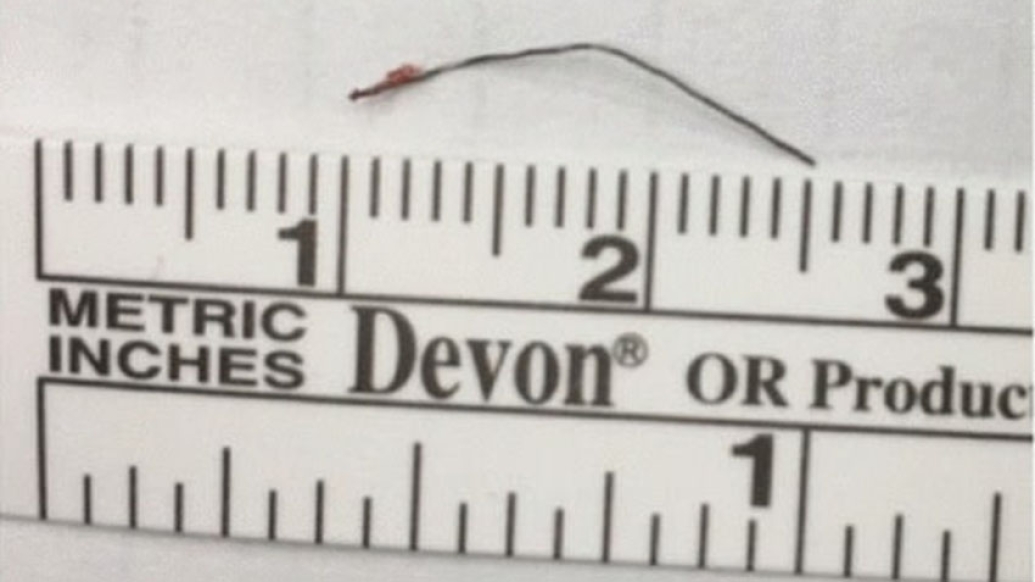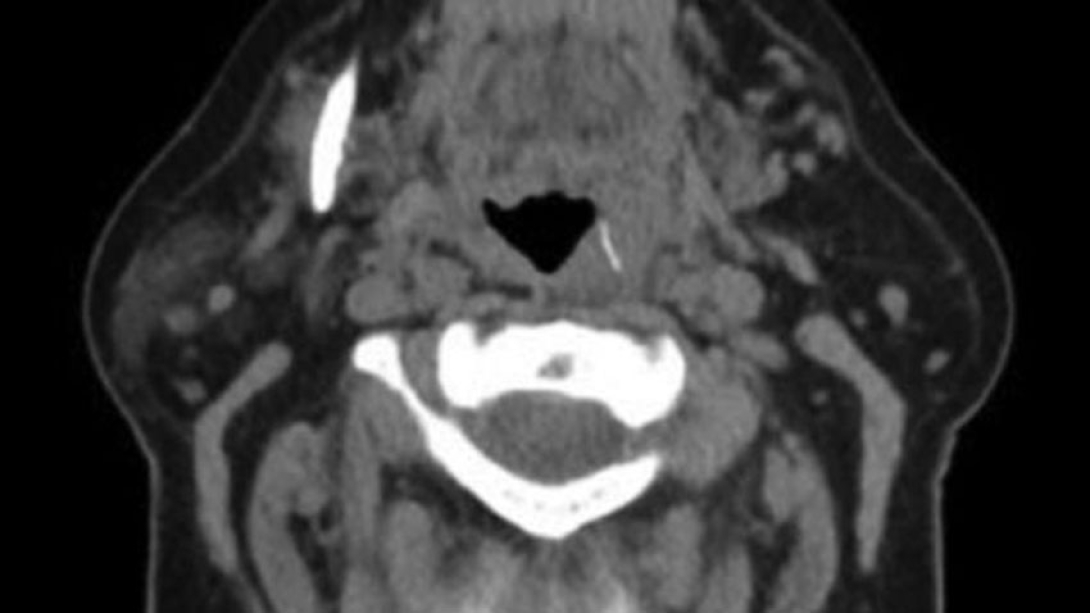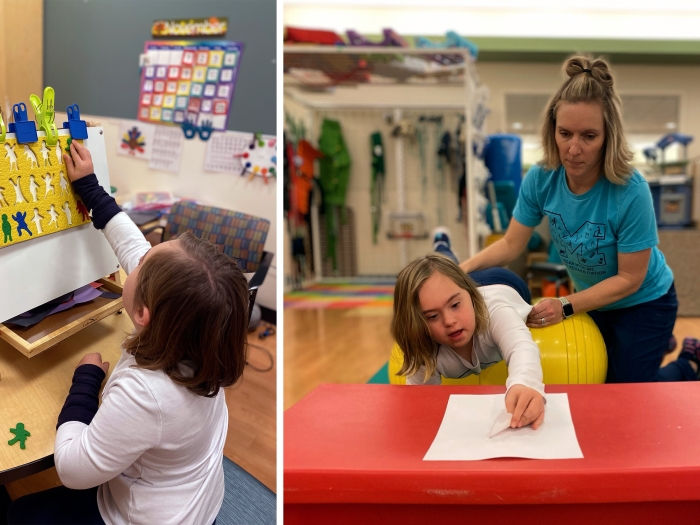A single hotdog bite landed Linda Pelham in the hospital unable to breathe, speak or swallow. After six months of agony, Michigan Medicine physicians discovered a wire grill brush bristle stuck in her throat.
8:00 AM
Author |

When we found out that there was a wire in my throat, my husband swiped a magnet over our grill and picked up an additional 30-40 wire bristles, previously unseen by the naked eye – it was alarming.
Summertime can include many joyful occasions, including family barbecues with delicious food and fun conversation. However, 64-year-old Michigan native Linda Pelham had no idea that one event would lead to a six-month long rollercoaster, riddled with pain, confusion and an eventual medical emergency.
This is her story:
June 30: Pelham and her family gather for a cook-out at her home. Before guests arrived, her husband made sure to clean the grill with their trusted wire brush. Pelham requests a charred hot dog, which her husband cooked directly on the grill.
After just one bite, Pelham feels a searing pain on the left side of her throat, coupled with difficulty swallowing and speaking. In a panic, her husband performs the Heimlich maneuver, and she begins to breathe normally.
LISTEN UP: Add the new Michigan Medicine News Break to your Alexa-enabled device, or subscribe to our daily updates on iTunes, Google Play and Stitcher.
However, her pain continues, and they head to the local hospital's emergency room. While there, the doctor scopes Pelham's throat and finds nothing. A CT scan is then scheduled for July 9.
July 5: At 2 a.m., Pelham wakes up in a panic, hardly able to breathe or swallow. She notices that her night shirt is soaked in saliva and assumes she couldn't swallow as she slept. After moving herself to a nearby recliner, she eventually falls back asleep.
Three hours later, she wakes up again, gasping for breath in a cold sweat. At 8 a.m., she heads to a nearby urgent care clinic, where the doctor gives her a steroid shot. Once Pelham fully recovers her abilities to breathe, swallow and talk, the doctor orders X-rays that reveal a metal wire lodged in the left side of her throat.
Both Pelham and her husband deduce that the wire must be a bristle from their grill brush.
July 9: Pelham returns to the hospital for her CT scan and is immediately referred to an otolaryngologist in a nearby city. When she arrives, they scope her nose and schedule a more invasive surgery for later that evening.
During the surgery, the doctor finds nothing.
August – November: Pelham continues to go back to her local hospital for regular steroid shots to help her breathe normally, and she is eventually referred to Michigan Medicine's Department of Otolaryngology.

Brain Kilbarger, PA-C, a physician assistant, initially sees the patient and orders X-rays, which reveal a wire bristle deeply embedded in her throat. Kilbarger consults with Mark Prince, M.D., professor and chair of the department, who meets with Pelham and orders another set of X-rays. Each time, the scans show that the wire bristle is on the move, traveling from one side of her throat to the other.
MORE FROM MICHIGAN: Sign up for our weekly newsletter
Prince informs her that an incision will have to be made in order to extract the wire, but it'll be risky. Both the jugular and carotid arteries are very close to where it is lodged.
December: After a new set of X-rays, it's determined that the wire has moved once again. This time, however, it is located in the back of Pelham's throat. After a lengthy surgery, Prince and his team carefully remove it, with no harm done to her arteries.
Both she and her husband rejoice that her pain will finally come to an end.
The journey ahead
After six months of agony and distress, Pelham now passionately encourages others to practice grill safety when barbecuing.

"I can't stress how important it is to use brushes with plastic or other non-metal bristles when cleaning your grill," says Pelham. "When we found out that there was a wire in my throat, my husband swiped a magnet over our grill and picked up an additional 30-40 wire bristles, previously unseen by the naked eye – it was alarming."
She also adds that without Prince and his team, she might still be suffering.
"I'm so proud of the work they do at Michigan Medicine, and I'm forever grateful for Dr. Prince and his expertise, dedication and care," says Pelham.
As for Prince, his main takeaway is that patient persistence matters when something doesn't quite feel right.
"I was glad that Linda kept seeking answers to her problem," says Prince. "Wire bristles from barbecue cleaning brushes are often very difficult to identify visually or by radiology exams, often resulting in the need for multiple examinations until someone sorts out what is happening – I'm proud of Linda for being persistent about her care."
To learn more about safety tips for your next barbecue or picnic, click here.

Explore a variety of healthcare news & stories by visiting the Health Lab home page for more articles.

Department of Communication at Michigan Medicine
Want top health & research news weekly? Sign up for Health Lab’s newsletters today!





